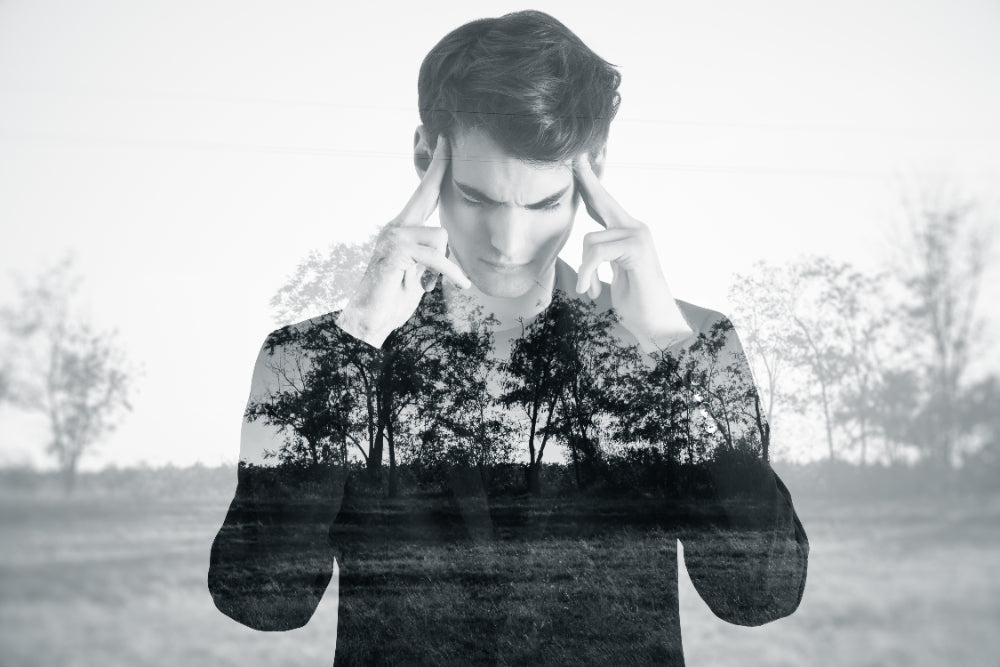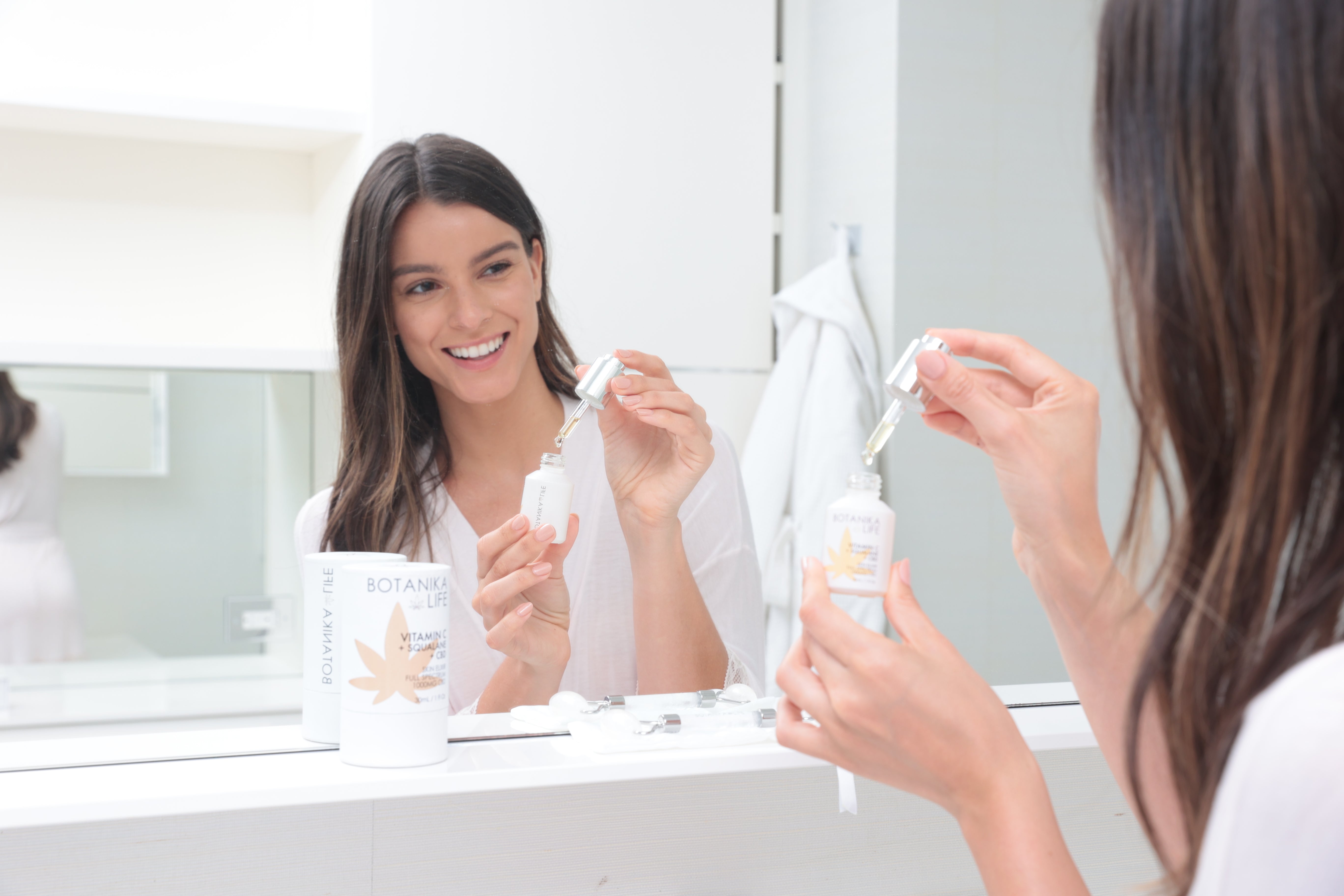
CBD for Anxiety & Depression
What is CBD?
Cannabidiol (CBD) is a chemical compound found in the Cannabis sativa plant, which includes both hemp and marijuana. Unlike THC, the psychoactive compound in cannabis, CBD interacts differently with certain receptors in the brain and does not produce a "high".
CBD can be legally derived from the hemp plant and is available in various forms. It can be taken orally as oils, capsules, or sprays, or applied topically as lotions or oils. It is also incorporated into foods, beverages, pet products, cosmetics, and even fabrics. Depending on state laws, you can buy CBD online, at specialty stores, or in grocery stores and pharmacies.
Does CBD Help with Depression?
The link between CBD and depression is an active area of research. Some studies suggest CBD may have antidepressant-like effects due to its interaction with serotonin receptors in the brain, which are crucial for mood regulation. However, findings are not yet conclusive. While animal studies show promise, there is limited research involving humans. For instance, a 2022 study indicated CBD might help reduce depressive symptoms, but further studies are necessary to confirm its efficacy.
Studies on CBD for Anxiety and Depression
Anxiety
Over the past 30 years, more than 12 animal studies have suggested that CBD can reduce anxiety-related behaviors, with results varying based on dosage. Several human studies have produced similar findings:

- In the 1970s and 1980s, researchers found that CBD reduced anxiety induced by THC.
- A 1993 study showed that CBD helped participants feel less anxious during public speaking tests.
- A 2011 study demonstrated that CBD alleviated symptoms in individuals with social anxiety disorder.
- In 2019, research revealed that CBD was more effective than a placebo in reducing social anxiety in teens.
- A 2022 study on young people with treatment-resistant anxiety showed significant symptom improvement after using CBD.
Ongoing research continues to explore the effects of CBD on anxiety, with several studies investigating its impact on cancer-related anxiety or anxiety disorders.
Depression
Because anxiety and depression are often treated with similar medications, researchers believe that CBD may also help alleviate depression. However, fewer studies have focused directly on this condition

- About 20 animal studies suggest CBD has antidepressant properties.
- A 2012 study involving cancer patients reported improvements in depressive symptoms using a medication containing both CBD and THC.
- Two 2018 studies indicated CBD could reverse depressive symptoms caused by marijuana use.
- A survey of over 2,000 people found that one in six used CBD for depression, with nearly two-thirds reporting moderate to significant relief.
While findings are promising, the exact mechanisms through which CBD may alleviate anxiety and depression remain unclear. CBD interacts with over 65 receptors in the brain, including those involved in serotonin regulation, which is essential for mood balance.
Is CBD Safe for Depression?
CBD is generally considered safe when used appropriately. The World Health Organization states that CBD has a low potential for abuse and is well-tolerated by most individuals. However, because CBD products are not regulated by the FDA, their quality and consistency can vary. Consulting a healthcare professional before using CBD is crucial, especially for those already taking medications for anxiety or depression.
At present, the FDA has approved CBD only for certain seizure disorders. Other products lack regulation, meaning their safety and contents cannot be guaranteed. Consumers should be aware of the following risks:
- Inconsistent CBD concentrations compared to product labels.
- Potential presence of THC or other unlisted ingredients.
- Possible contamination due to unregulated manufacturing processes.
Risks of Using CBD
Clinical studies have identified some potential side effects of CBD, including:
- Fatigue
- Reduced appetite
- Diarrhea
- Mood changes
- Liver issues
- Male fertility concerns
Additionally, CBD can interact with certain medications, such as antibiotics, antidepressants, cholesterol drugs, and blood thinners, altering their effectiveness. While many users report positive experiences, it's essential to use CBD under medical supervision.
What is the Best Way to Take CBD for Mental Health Benefits?
The effectiveness of CBD can depend on how it is consumed:
- Oils and tinctures: Quick absorption and easy dosing.
- Capsules: Convenient but slower-acting.
- Edibles: Discreet but with delayed effects.
- Vaping: Rapid absorption but with potential respiratory risks.
Since responses to CBD vary, it’s recommended to start with a low dose and gradually increase while monitoring its effects.
Best CBD Products for Depression
Botanika Life offers premium CBD products that may help with depression-related symptoms:

- CBD Sleep Spray with Melatonin: Combines CBD with melatonin to promote restorative sleep, benefiting mood and mental health.
- Elite Elixir: A full-spectrum CBD serum that soothes irritation and may support emotional well-being.
- Pain Relief Roller: Eases muscle and joint discomfort, potentially reducing mood-related symptoms from chronic pain.
- CBD Bath Bombs: Provide relaxation through aromatherapy and CBD, alleviating stress.
- Vitamin C and CBD Elixir: Enhances skin health while promoting emotional well-being.
Should You Try CBD for Depression and Anxiety?
CBD shows potential as a treatment for anxiety and depression, but more research is needed to establish its safety and efficacy. Consulting a healthcare provider can help you determine whether CBD is a suitable option for your mental health needs.
In summary, while CBD may offer benefits, informed decision-making and professional guidance are essential for safe and effective use.


